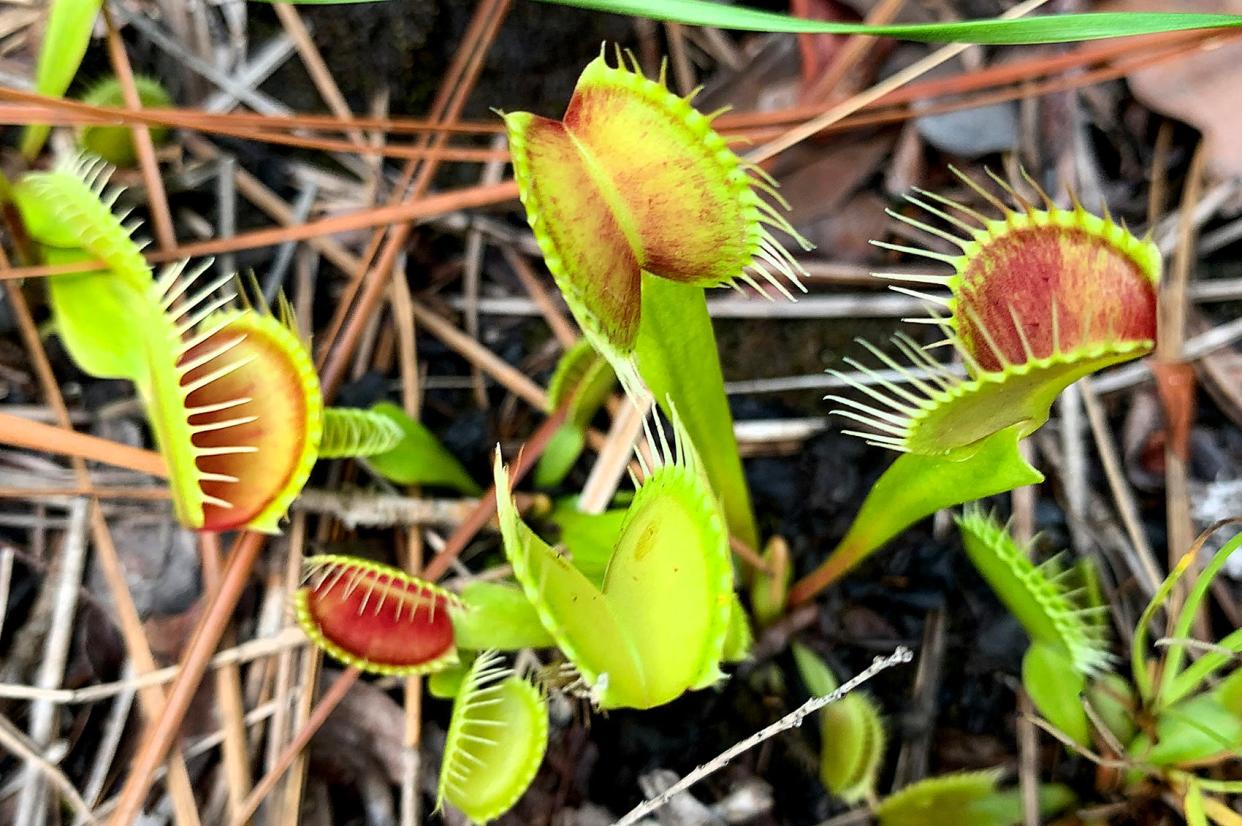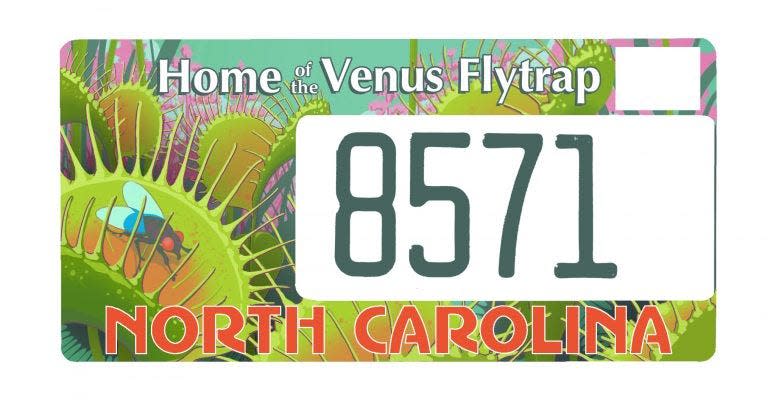MyReporter: Why does the Venus' flytrap only call the Wilmington area home?

It might be the smallest plant with the biggest reputation in the world.
And this Hollywood star is unique to the Wilmington area.
Here's what you need to know about the Venus' flytrap, which Charles Darwin famously called "the most wonderful plant in the world," and why it has decided to make the Cape Fear region its only natural home.
Where does it grow?
The carnivorous plants, which only grow naturally within roughly 75 miles of Wilmington, need high humidity and wet, sandy oil and mostly full sun.
That makes much of the Coastal Plain ideal habitat for flytraps. But the plant also needs periodic burnings of its longleaf pine savannas, which have been heavily timbered and converted to agricultural uses since colonial days, to keep other plants and shrubs from growing and blocking the sunlight the low-slung flytraps need to thrive.
This loss of habitat is one of the primary threats to flytraps.
MyReporter: What are the Seneca Guns? Could they be earthquake rumbles or ghostly echoes?
How does it eat?
While most of a flytrap's energy is obtained through photosynthesis, insects provide nutrients that aren’t readily available in the sandy, nutrient-poor soils favored by the small plants.
They attract their prey using the reddish lining of their leaves. When an insect touches hairs on the trap, it triggers the leaves to rapidly snap shut on the unsuspecting prey. The leaves then close tighter to squash the prey. Roughly 10 days after closing and digesting its dinner, the trap reopens.
Interestingly, researchers have found that the flytrap won't normally trap flying insects that it relies on to help pollinate and reproduce, instead munching on flightless bugs like ants and spiders for dinner.

HANDS OFF! Keeping Venus' flytrap poachers at bay
FLYTRAP LICENSE PLATE: From Venus' flytraps to wetlands, what 4 proposed bills could mean for the Wilmington area
Are they a protected plant?
Yes, to a degree.
Poaching Venus flytraps became a felony in North Carolina in 2014, and the plant is classified as a "species of special concern" in the state.
But in 2023, the U.S. Fish and Wildlife Service determined that the species does not meet the definition of threatened or endangered.
Although illegal to pick in the wild, flytraps can be bought in garden shops. But the plants are notoriously hard to keep alive as houseplants because of their unusual habitat and food needs.
Do you have a question about the Wilmington area that you'd like a StarNews journalist to try to answer? Send an email to [email protected].
Reporter Gareth McGrath can be reached at [email protected] or @GarethMcGrathSN on X/Twitter. This story was produced with financial support from Green South Foundation and the Prentice Foundation. The USA TODAY Network maintains full editorial control of the work.
This article originally appeared on Wilmington StarNews: Why the Venus' flytrap only calls the Wilmington area home
